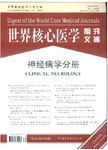反复经颅磁刺激诱导的慢性卒中患者皮质运动兴奋性和相关运动技能的获得
Repetitive transcranial magnetic stimulation-induced corticomotor excitability and associated motor skill acquisition in chronic stroke作者机构:Seoul 135-710 South Korea Kangnam-ku Dr.Department of Physical Medicine and Rehabilitation Sam-sung Medical Center Sungkyunkwan University School of Medicine 50 Ilwon-dong
出 版 物:《世界核心医学期刊文摘(神经病学分册)》 (Digest of the World Core Medical Journals.Clinical Neurology)
年 卷 期:2006年第12期
页 面:37-37页
学科分类:1002[医学-临床医学] 100204[医学-神经病学] 10[医学]
主 题:兴奋性 应激性 磁刺激 经颅 皮质 运动技能 运动技术 患者
摘 要:BACKGROUND AND PURPOSE-Although there is some Early evidence showing the value of repetitive transcranial magnetic stimulation(rTMS)in stroke rehabilitation,the therapeutic effect of high-frequency rTMS,along with the physiology of rTMS-induced corticomotor excitability supporting motor learning in stroke,has not been *** study investigated high-frequency rTMS-induced cortical excitability and the associated motor skill acquisition in chronic stroke ***-Fifteen patients with chronic hemiparetic stroke(13 men;mean age 53.5 years)practiced a complex,sequential finger motor task using their paretic fingers either after 10 Hz or sham rTMS over the contralateral primary motor cortex(M1).Both the changes in the behavior and corticomotor excitability before and after the intervention were examined by measuring the movement accuracy,the movement time,and the motor-evoked potential(MEP)amplitude.A separate repeated-measures ANOVA and correlation statistics were used to determine the main and interaction effects as well as relationship between the changes in the behavioral and corticomotor ***-High-frequency rTMS resulted in a significantly larger increase in the MEP amplitude than the sham rTMS(P 0.01),and the plastic change was positively associated with an enhanced motor performance accuracy(P 0.05).CONCLUSIONS-High-frequency rTMS of the affected motor cortex can facilitate practice-dependent plasticity and improve the motor learning performance in chronic stroke victims.



